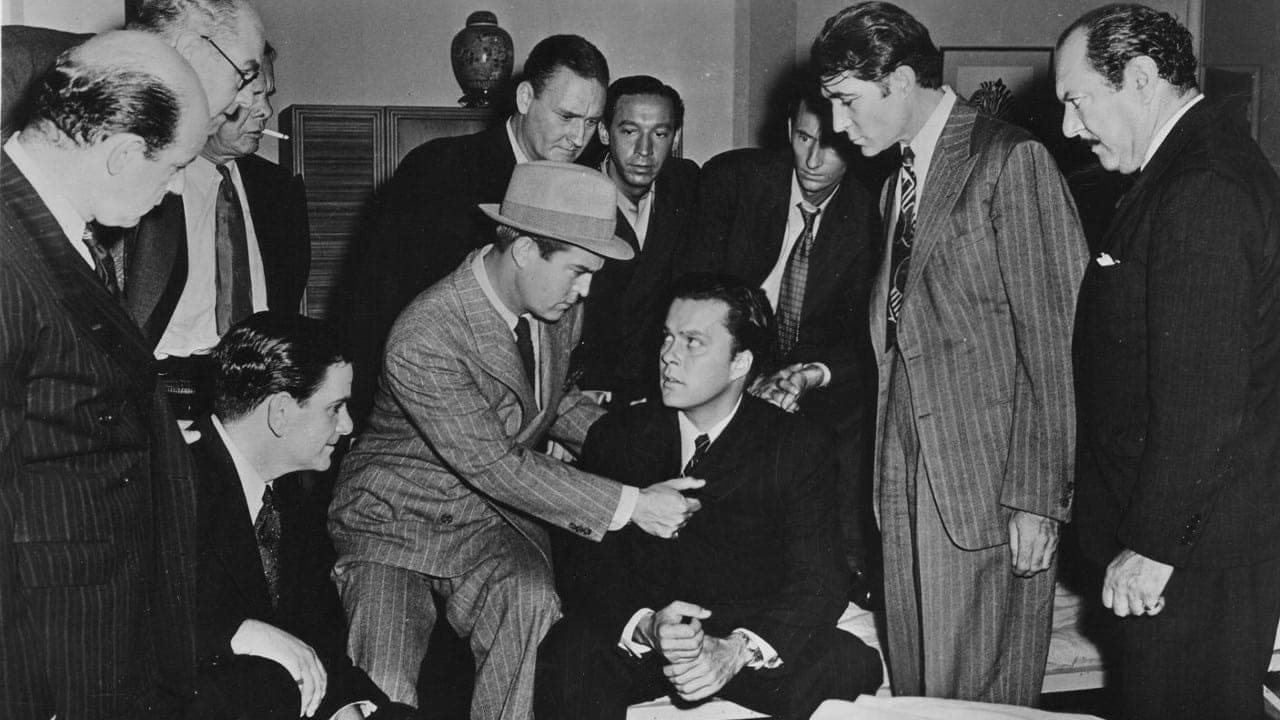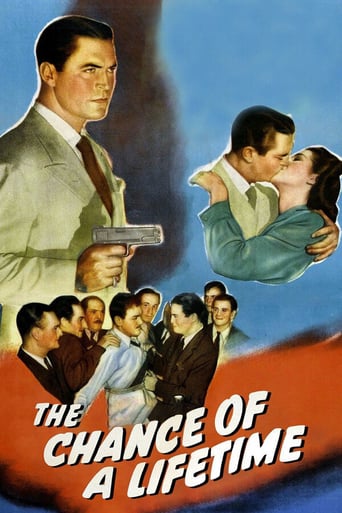StunnaKrypto
Self-important, over-dramatic, uninspired.
KnotStronger
This is a must-see and one of the best documentaries - and films - of this year.
Janae Milner
Easily the biggest piece of Right wing non sense propaganda I ever saw.
Derry Herrera
Not sure how, but this is easily one of the best movies all summer. Multiple levels of funny, never takes itself seriously, super colorful, and creative.
mark.waltz
It's more of the same here for Boston Blackie in the sixth of the series. Chances have it that the film itself is more mediocre than before, although there are some very amusing moments. Boston Blackie finds himself in trouble once again, wanted by the ever persistent (and still dumber than a box of unpublished scripts) and the even more idiotic Walter Reade, all because he aided old pal Erik Wolfe in covering up manslaughter. Joining other macho dudes who dressed in drag, Chester Morris disguises himself as a scrub maid, along with George E. Stone, getting Maude Eburne drunk in the film's best scene. But it's mostly bland, a repeat of what was already done (and better), with Lloyd Corrigan back once again along with other previous seen actors in different parts. Jeanne Bates, a brief Columbia contract actress, gets little to do as Rolfe's wife, kidnapped by the villains and the key to what really happened. At least, however, it's not a dreadful film, although I found myself starting to feel a bit of de ja vu. Six down, eight to go, and hoping for improvement.
LobotomousMonk
"Your logic is simply hypnotic" says a "dumb copper" to Boston Blackie in The Chance of a Lifetime. I can't help but feel the logic of William Castle's directing follows in turn. Castle certainly developed his stylistic system and method of directing across his career, but this early entry characterizes his lack more than anything else (a lack he wold make up for in time). Diegetic space is constructed through shot scale cut-ins for an otherwise static camera. Later, Castle would develop his system with more mobile framing and angular contrapuntal direction (Ohmart in the Emergo scene in Haunted Hill is captured in a multiple of angular shots). In The Chance, the camera is positioned with frontality as the dominant. When groups of characters are framed, they huddle symmetrically staged in front of the camera lens creating balanced tableaux. The staging and blocking does not have the oblique quality prominent in later Castle films. The story itself involves Blackie's proposed plan to the state's Governor to parole ex-cons in order to aid in munitions manufacturing for the war. Recidivism and risk assessment are the name of the game as Blackie gets tangled up in the loose ends of an old crime of one of the paroled cons. There is good suspense and characterization but at times the acting is stilted while the dialogue is a little on-the-nose. As is characteristic of Castle "B" status films, plot contrivances abound. An earlier reviewer seemed to express that the contrivances are an asset or perhaps aid, while I cannot agree. The "cigarette gag" and "secret panel" gag have the lameness that makes narrative progress move forward with an awkward gait. The buffoonery of the police was an issue with the critics upon release as far as it concerns the status quo. For me, the portrayal of the police as stooges gets tired and leads to the story dragging somewhat (others may disagree). The ending involves confessions under extreme duress and although neat, are also an element of convenience at service for the production and not the audience. The flaws in directing would be repeated several times by Castle as he worked slowly to develop a more sound stylistic system.
csteidler
Inspector Farraday seems nastier than usual in this Boston Blackie picture. Sure, Blackie is used to Farraday hounding him constantly, but now Farraday is out to pounce on Blackie's new convict reclamation project. The project is for the war effort, of course: Blackie has lined up jobs for ten early parolees at a tool and die works, and the convicts are talented welders and craftsmen, their skills much in demand in 1943. Farraday is having none of it, and lurks on the edges of the project, looking for the slightest slip-up. Come on, Inspector, show a little patriotism! The mystery plot here is solid and the action is fast-moving, though overall the film is perhaps not quite as sharp or quick-hitting as some in the Blackie series. Still, there's disguises (Blackie and the Runt as cleaning ladies, one of whom needs a shave); tight squeezes (Blackie and the Runt on a dumbwaiter); and poor detective Matthews taking insults (Farraday to his officers: "You cover the fire escape, you take the service entrance, and I'll go in the front way alone." Matthews: "Alone! Hey, chief, I'll be with you." Farraday: "It's the same thing.").Some hilarious newspaper headlines chronicle Farraday's attempts to capture and hold Blackie and a wad of $60,000 that everyone is concerned with.Good entertainment for us Blackie fans. Chester Morris, as always, is smooth and steady.
django-1
Most all of the 1940s Columbia "Boston Blackie" films starring Chester Morris are worth watching. This entry has Blackie vouching for some convicts (remember, Blackie himself is a reformed ex-con), trying to get them early releases so they can work in factories aiding the war effort. A judge agrees, and lets them out to begin work. Obviously, things do not work out as planned...Morris's personal charm and colorful acting style always help the film along, and his sidekick The Runt and his antagonists from the police force return from the earlier entries in the series. It's a fast moving 65 minutes, and like any of the b-movie directorial efforts of William Castle at Columbia in the 1940s, it features a number of clever visuals and plot contrivances. Also, the film is NOT a traditional murder mystery, but I don't want to give anything away, so you'll have to see it yourself. Definitely worth finding for fans of b-movie detective films. And it's always great to see Douglas Fowley as a gangster again!

